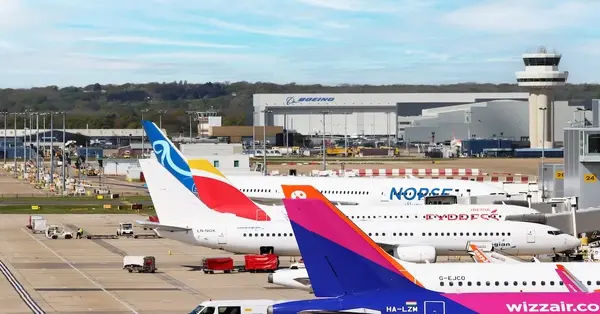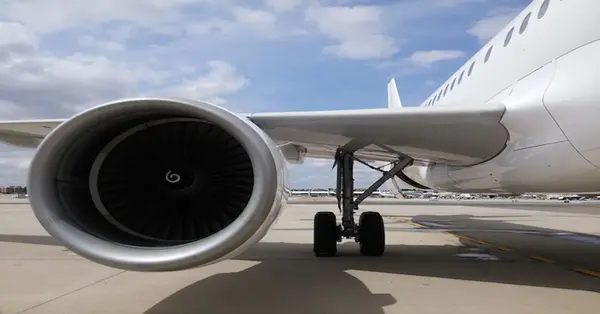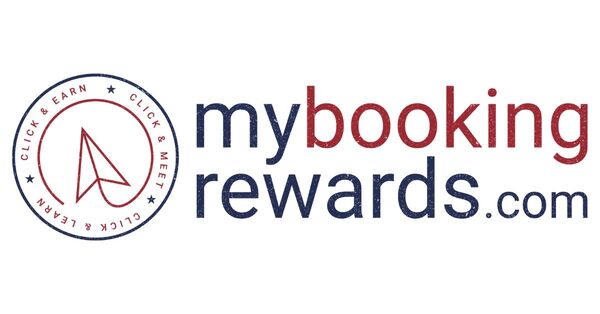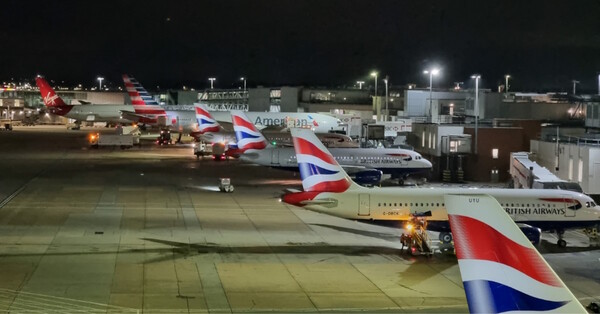You are viewing 1 of your 2 free articles
Updated: Travel leaders react to ‘punishing tax measures’ in autumn Budget
The Labour government’s first Budget since 2010 has seen a hike in employers’ national insurance contributions as well as increases to the national living wage and national minimum wage.
Chancellor Rachel Reeves outlined in her first Budget how employers’ national insurance contributions (NIC) will increase from 13.8% to 15%, while the threshold to start paying national insurance on workers’ earnings will drop from £9,100 to £5,000.
The national living wage for those aged 21 and older will rise by 6.7% to £12.21 from next April, along with the national minimum wage for 18 and older going up by 5.8% to £12.10.
Apprentices’ hourly pay will increase from £6.40 to £7.55.
The Budget was delivered after travel leaders expressed concern about the measures putting pressure on travel businesses still recovering from the pandemic.
Business rate relief, which currently sits at 75%, will be replaced by a discount of 40% in April 2025, up to a cap of £110,000 per business.
The small business tax multiplier will be frozen next year, and permanently lower tax rates will be introduced for retail, hospitality and leisure properties from 2026-27
Air Passenger Duty (APD) on economy class short-haul flights will rise by “no more than £2”, Reeves said, and will go up by 50% for flights by private jet.
Mark Tanzer, Abta chief executive, said the measures imposed in the Budget would “make life more difficult for travel businesses” in the short-term.
“While it is welcome that rates relief is extended for a further year, the reality is the 40% rate will represent a significant hike in bills for many high street agents,” he said. “Additionally, the cost of employing staff that the industry needs to thrive will increase for many travel firms.”
Tanzer also labelled further increases in APD as “disappointing”, however he did add there were some “bright spots” for the long-term outlook of the sector, including Reeves’ acknowledgement of the importance of high street businesses.
Julia Lo Bue-Said, The Advantage Travel Partnership chief executive, said: “The punishing tax measures announced in the Budget serve to strangle the very enterprises that form the backbone of our economy.
“With tax hikes piling on top of existing pressures, small business owners are being squeezed from every direction, leaving them with impossible choices between survival and growth.
“The new tax rises come on the back of a tough few years, adding more cost to businesses when many in our sector are still in recovery mode post-pandemic.
Lo Bue-Said said further detail was required to “fully understand” the impact of business rate reform from 2026.
A spokesperson for The Travel Network said: “The decision to continue business rate relief also offers some stability to our sector. However, the reduction from a 75% to a 40% relief rate is a notable decrease, which may still place pressure on smaller businesses within our network.
“While we appreciate the government’s acknowledgment of small business needs, the simultaneous rise in the minimum wage and employer national insurance contributions could present additional financial challenges. Many of our members are small business owners who will need to adjust to these changes.”
‘Latest blow’
Kate Nicholls, UKHospitality chief executive, said the Budget was “the latest blow” for hospitality businesses and rising taxes, increasing costs and fragile consumer confidence “risk bringing growth to a grinding halt”.
She explained: “In the short-term, the tsunami of employment costs coming in April will ultimately do more to hamper growth than incentivise it. Increases to employer NICs and wages will make it harder for businesses to support employment and invest in their businesses.
“Avoiding the business rates cliff-edge next April was critical and it was important that some relief has been extended. However, the reduced level of 40% is another cost that businesses have to deal with. For those small and medium-sized operators, their rates bills will still go up in April.”
She said this all meant next year would be “painful” for hospitality with an increased annual tax bill of £3 billion for the sector.
However, there are “reasons for longer-term positivity,” Nicholls said. “I am pleased that the Chancellor is implementing UKHospitality’s recommendation for a permanently lower level of business rates for hospitality. Levelling the playing field in this way recognises the importance of the high street and the role it plays in our communities and economy.”
Nicholls echoed Lo Bue-Said’s call for more detail and urged the government to work with the sector to design and deliver this “significant change”.
‘Disappointing APD rise’
On the rise of APD, Lo Bue-Said remarked the change would “increasingly” make the UK “an uncompetitive destination”.
She said: “This will not support business growth and puts more pressure on households discretionary spend on travel, business travel and the visitor economy.”
Aito executive director Martyn Sumners said it was no surprise that APD has been increased.
“Although the increases are not as high as they might have been, the impact on a family planning a special-occasion long-haul holiday will nevertheless be considerable,” he said.
“The new Labour government seems to view a holiday as discretionary spend, whereas Aito’s annual consumer surveys regularly tell us that holidays are an essential part of many people’s lifestyle, and a definite force for good.
“It was, however, positive to hear the Chancellor talk about helping small businesses to enjoy growth.
“Let us hope this proves to be the case, with sensible actions such as simplification of the Atol system and the package travel regulations, and reducing the burden of red tape for SMEs in the travel industry such as Aito members.”
The Travel Network Group spokesperson said: “The modest £2 cap on the APD increase for short-haul economy flights reflects a balanced approach, aimed at maintaining affordability for travellers, while supporting the recovery of the industry.”
Steve Witt, co-founder of Not Just Travel responding to the increase in APD, said: “There is already a lot of tax on travel so we’re grateful it wasn’t increased further. Would we rather it didn’t happen? Of course.”
He described the rise as a “fair and proportionate amount that won’t significantly impact anyone’s travel plans” as the government funds investment.
Karen Dee, chief executive of trade association Airports UK, said: “It was disappointing that the chancellor increased Air Passenger Duty, especially at a time when airports are investing in new security technologies, sustainable flight and airspace modernisation, as well as facing increasing burdens in other areas.
“If the government is serious about realising its aim for the UK is to become the fastest-growing economy in the G7, then it must recognise and champion the role that airports play in growth and international connectivity and minimise the cost and regulatory burdens imposed.”
However, Dee welcomed the Budget’s extension of the advanced fuels fund and an additional £975 million in research and development funding for aerospace to support the transition to zero emission flight.
Airlines UK chief executive Tim Alderslade said: “We welcome the announcement of a further 12 months of funding for the Advanced Fuels Fund, which will support UK sustainable aviation fuel production, a key airline priority with the SAF mandate due to commence in January.
“Air Passenger Duty, however, already makes the UK less competitive and further increases in addition to rises in other business levies will impact growth, directly hitting the pockets of ordinary travellers and making it harder for UK airlines to put on new routes.
“We need a revised and joined-up approach to the UK’s strategically vital aviation sector.”
Seamus McCauley, head of public affairs at Holiday Extras said: “The new change to APD shouldn’t have too much of an impact on most holidaymakers, with the tax on short haul flights not seeing a significant increase. The changes announced in the budget also don’t take effect until April 2026, so there’s no new charges for a year and a half.
“For those wanting to find ways to avoid an increase in APD on long-haul flights, there are options to change in Dublin for those travelling to the States.
“Or even fly via Inverness, which benefits from being exempt from APD and an international airport, with links to Amsterdam meaning passengers can fly to almost anywhere without paying any UK duty.
“The next impact to holidaymakers will be whether airlines make changes to routes or base prices, with some even suggesting a cut on domestic flights due to the increase.”
Meanwhile, Joss Croft OBE, UKinbound chief executive, commented: “We are incredibly disappointed to see Air Passenger Duty increase and that businesses across the industry will see operating and staff costs rise.
“As the UK’s second largest service export industry, inbound tourism is an incredibly powerful driver of economic growth across the UK and has the potential to grow 20% by 2027, but businesses in this sector are now facing a new tide of challenges.”
The government said: “From 2026-27 Air Passenger Duty (APD) rates for short and long-haul flights will be adjusted to partially account for previous high inflation.
“For economy passengers, this is only a £1 increase for domestic flights, £2 extra for short-haul, and £12 more for long-haul flights, with children under the age of 16 remaining exempt from APD. APD for larger private jets will be increased by a further 50%. These changes will help align with the government’s environmental objectives.”
In a notice alongside the Budget announcing consultation on reforming APD for private jets, HM Treasury revealed that the passenger tax raised £3.8 billion in 2023-24.
Rates for 2026-27 were outlined as being in three bands for domestic flights, at between £8 and £142.
Short-haul flight up up to 2,000 miles will incur a rate of between £15 and £142 depending on the class flown.
Longer flights of up to 5,500 miles will incur APD of between £102 and £1,097, while long-haul flights of more than 5,500 miles will attract the highest rates of APD at between £106 and £1,141.
The primary objective of APD is “to ensure that the aviation sector makes a fair contribution to the public finances,” the document said.
“Revenue raised by APD funds vital public services for people and families across the UK. The UK is one of several countries to levy a per passenger tax on aviation.”
Meanwhile, Business Travel Association chief executive Clive Wratten described the government’s decision to raise regulated rail fares by 4.6% from March 2025, along with a £5 increase for most railcards as “deeply concerning”.
He added: “Affordable and reliable rail services are essential for business travellers and directly impact the UK’s economic growth.
“Passenger experience is at an all time low. Rail travel is a necessity for businesses and individuals, but additional costs must lead to tangible benefits for travellers.
“The BTA urges the government and the rail industry to use these increases to prioritise investments in service quality, reliability, and capacity improvements.”


















